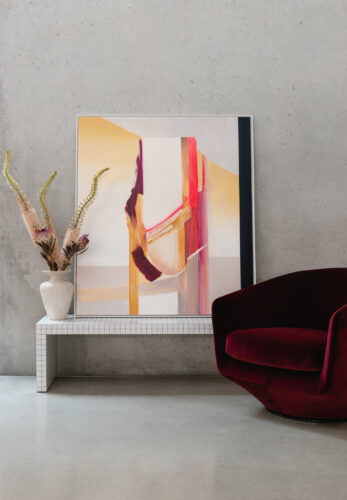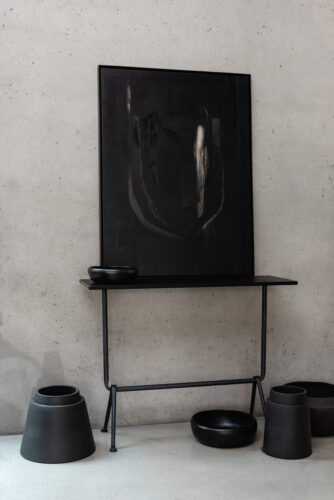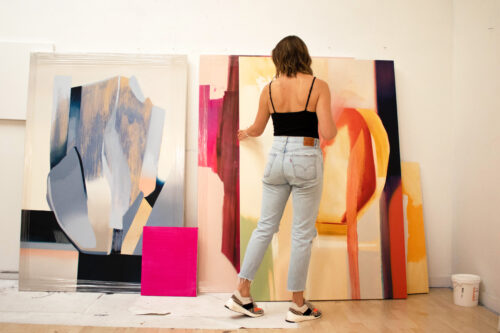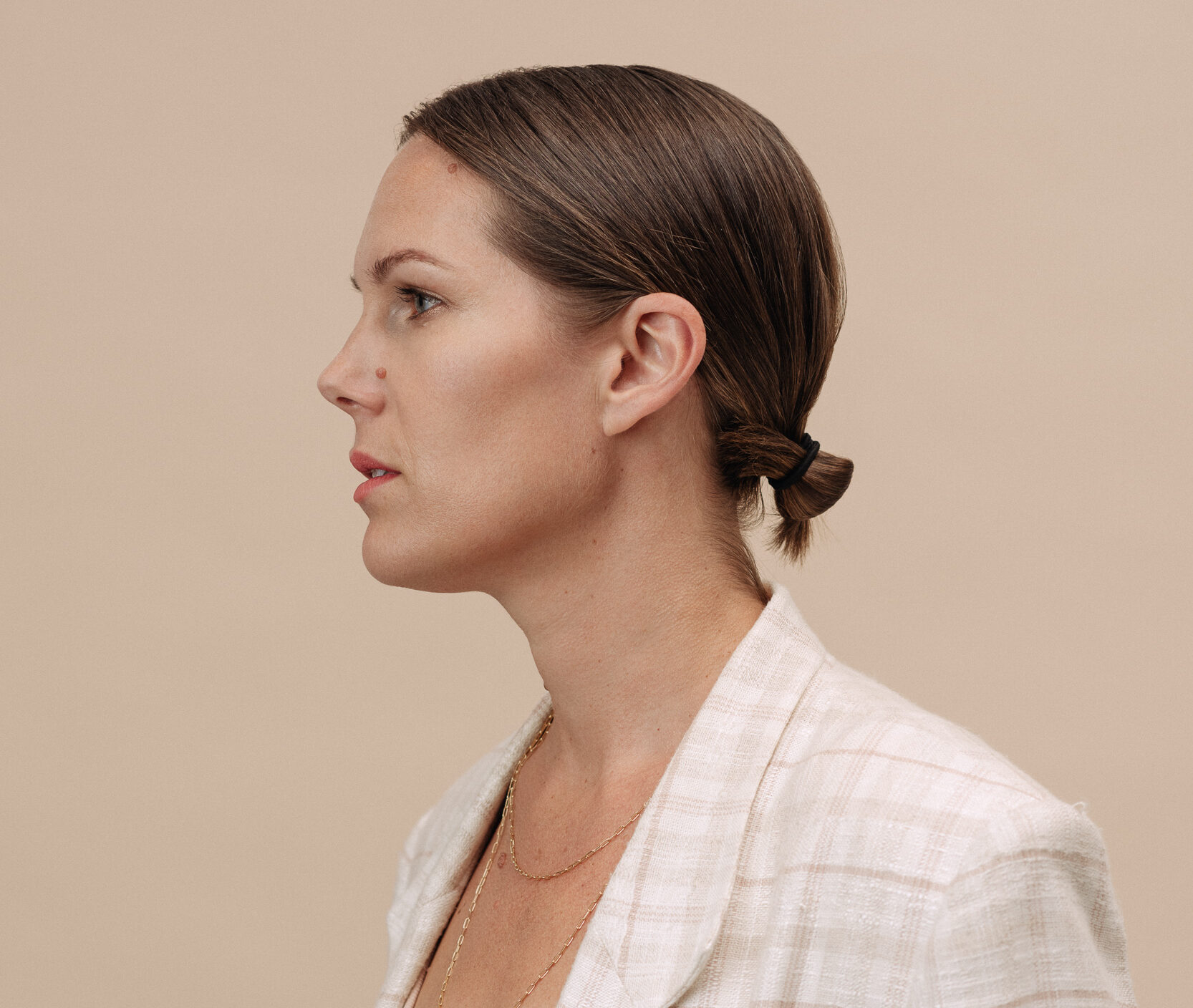When I first met Zoë Pawlak, we talked briefly, but there was something about her that was so calming and grounding. When she introduced herself, she simply said, “I am a Vancouver-based painter and industrial designer, mother of two teens, and a sober woman,” with a confident smile.
I reached out to her for an interview, and this time we met at her showroom. She greeted me again with that same serene smile.
“Everything around me inspires my paintings. Music, fashion, nature, the change in weather, and reading…I try to create a body of work that’s cohesive and that describes something that I’m experiencing,” Zoë explained.

Photo by Kezia Nathe
Her life as a painter:
One of your recent projects is The Vessels. Can you summarize it for the reader?
The vessel is a cup, a bowl, a holding space, a vase, or any other shape that could hold water or materials. It’s a metaphor for the body. Rather than depicting the figure as a sad woman crying, how about depicting the vessel as being influenced by the energies that are in it, under it, and around it, and how the vessel can only hold a certain amount before it overflows?
You were talking about the influence of the outside and the inside on our bodies; what do you think has more influence on your vessels or yourself?
I’m learning that as we are on the inside, so are we on the outside. Before I got sober there was anger and fear. The inside of me felt ugly. I didn’t know how to express myself with integrity and honesty to the outside world. I’m in a season in my life where I want there to be a fluidity between the two.
From the work around us, which one resonates with you right now?
My most recent work is Black on Black.
The Black on Black vessels specifically talk about the way a diamond is, for example, made in the dark or that the phoenix rises from the ashes. The work suggests that from these ashes, we have this potential rising. There are gems there to be uncovered and redeemable qualities found within the darkness.

Photo by Kezia Nathe
Her journey with sobriety:
You were saying how before you became sober, you had this anger, shame, and anxiety inside of you. Do you feel like there’s an intersection between your art and sobriety?
I don’t know if the work has changed much for anyone in the outside world except that the content of the vessel work is about that process of wanting the inside to match the outside. My work happens to be a major part of my life, and my life is now cleaner, more sober and kinder.
Walk me through your sobriety journey.
My drinking started in my teens and continued into my 30s. My drinking increased when I had children and like many women, I was binge drinking and it was private. Because drinking is culturally normalized, alcohol use and dependency are sort of hidden within the fabric of our everyday happenings.
Holly Whitaker was co-hosting a podcast called Home with Laura McKowen. Both of them applied a contemporary language that felt approachable and was something I could step into and claim as my truth. And from that point on, I have been sober for close to seven years.
Her thoughts on motherhood:
Did your painting change after becoming a mom?
Motherhood and my kids have been my biggest teachers. One of the things it’s done is help me clean out my closets. It helped me heal a lot of the things that I needed to heal. It’s been a practice of learning how to be a better listener. It’s not my way or the highway; it’s learning to live in symbiosis with them, and being aware of everybody’s needs.
How open are you with your kids, especially now that they are teens, about your journey and sobriety?
I told my kids about how alcohol almost ruined me. We have open conversations about substances so that they don’t have to hide anything. Things kept in the dark can only grow, and when we bring them out to the light, we find that we can either let them go, process them, or at least move through them. So we do that together, philosophically and in practice, as a family.

Photo by Noren Studio & Miriam Brellenthin
Her spiritual journey:
During our discussion, you touched on your spiritual journey. Tell me more.
I was raised in a liberal, left-wing, super-inclusive, Jesus-oriented Christian denomination. It was enjoyable, peaceful, and based on service. These are my Christian roots.
Now I practice yoga, I spend a lot of time in nature, I’m a part of a few recovery communities, and I coach and mentor. My spiritual life moves through my life in a less organized religious way. I think as you get older, you realize that we were called to be of service all along. When you are of service, you feel the most alive, at peace, and not self-absorbed. It brings this deep humanity to your day in a way that I don’t think anything else can.
Lastly, if you wanted to send a message to someone who’s sober-curious or still on their road to sobriety, what would you tell them?
You do not need to hit rock bottom to quit drinking. I would say that if you feel like you’re struggling with alcohol, you’ve likely been struggling for a while. Please tell someone, tell a trusted friend, even if you’re afraid, ask for help, and know that there’s peace and freedom on the other side that’s unimaginable and possible. Addiction thrives in isolation and when you feel that you are different from others. That’s why being in a community—any sort of recovery community—works wonders.
Zoë has a new project coming out soon: The Oracle Deck, an intuitive card deck. For more information about Zoë, visit her website.



 Follow Us On Instagram
Follow Us On Instagram
